
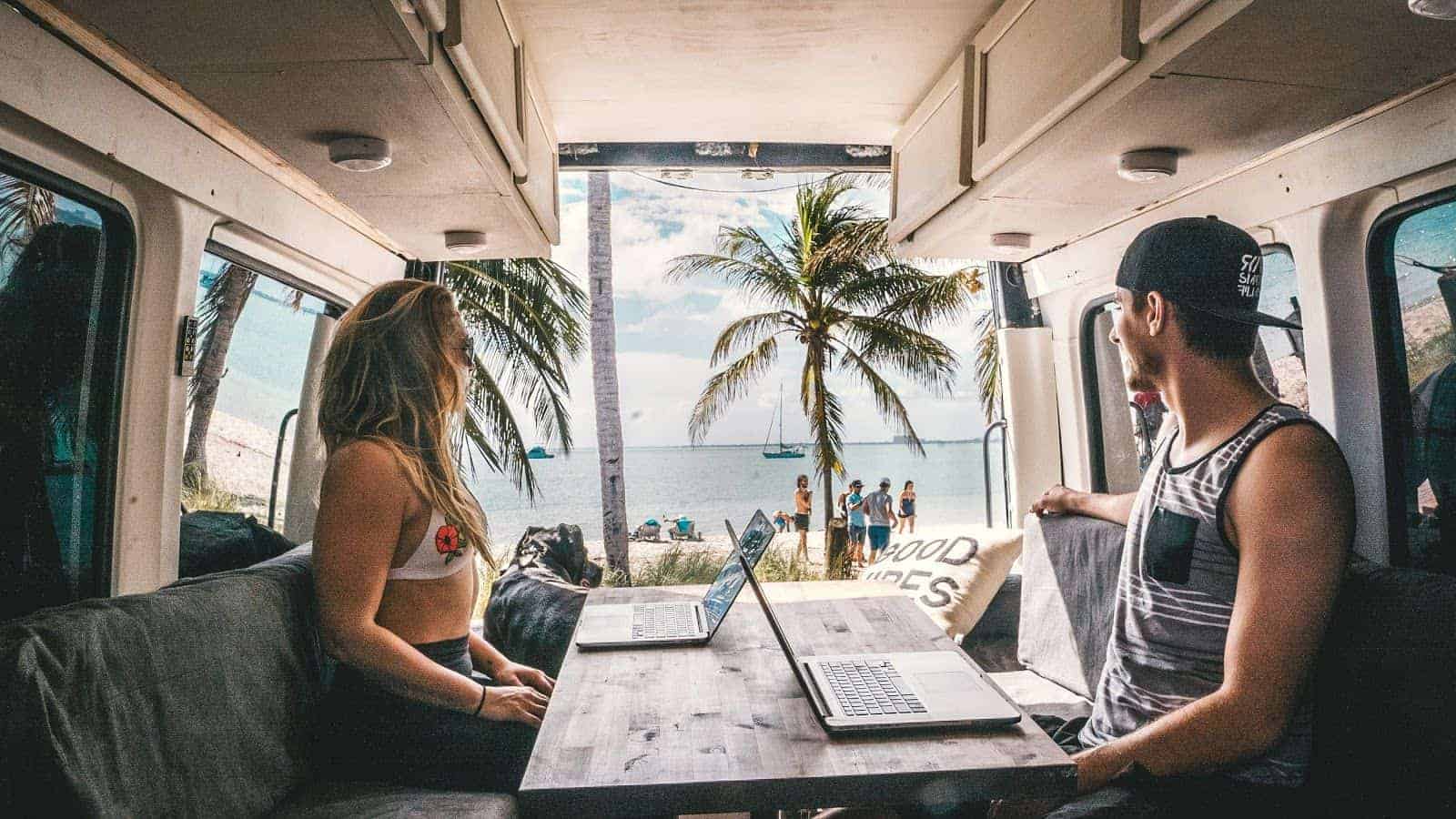
We’re sure you’ve already heard of them in the last few years:
Digital nomads.
Yes, those people who work out of hammocks next to the beach while enjoying a nice cocktail. At least that’s the impression you’d get if you browse through Google Images.
But what does their life actually look like?
Here we’ll answer your most pressing questions about the digital nomad lifestyle. Who are they and why do they exist? What kind of jobs are available? Where in the world can you find digital nomads? And how do they manage to live that way?
WHO are they and why do they exist?
WHAT kind of jobs are available?
WHERE in the world can you find digital nomads?
HOW do they manage to live that way?
We’ll show you their most popular destinations and some crucial tools that they use. In this way, you will get an insight into the possibilities that this way of life holds and how you can seize them.
Let’s see, maybe you’re already living the digital nomad lifestyle but just haven’t called it that as yet!
Digital nomads are symbols of the “modern human”. They are not bound to an office because they use the world wide web to work – wherever they want, whenever they want. This enables them to travel the world like true nomads from back in the days.

The idea may be new to some of you. That’s why we made this small glossary with 10 buzzwords that you often hear.
Digital Nomad
A person using technological advancements to work online while travelling the world at the same time.
Remote Worker
An employee working independently of the location of the firm. Doesn’t necessarily travel constantly.
Coworking Space
Offices and facilities that you share with other freelancers and teams.
Expat
A person who left their country of origin to live abroad. Unlike the remote worker, an expat could also be working in the new country.
Freelancer
A person who is his/her own boss and chooses their clients independently. Digital nomads often work as freelancers to have more flexibility and freedom.
Workation
A combination of ‘work’ + ‘vacation’. It’s similar to the digital nomad lifestyle but is only for a fixed period.
(Startup) Retreat
Basically another term for ‘workation’ where startup teams, for example, retreat for some time to finish a specific project.
Co-Living
A shared flat with other digital nomads or remote workers.
Peer-to-Peer Accommodation
Communities like Couchsurfing or AirBnB where you can find local hosts to stay with. Falls under the concept of the Sharing Economy.
Sharing Economy
An umbrella term for the mindset of sharing what’s yours with others. Another example besides shared accommodation is carpooling communities.
Around 60 years ago, scientists had already propounded an adventurous thesis. Researchers described the future life of people as it relates to digital media as “Urban Nomadism”.
In their imagination, it looked like this: Persons travelling around restlessly with all their property. The basic idea had the same premise as today.
To make the world your home.

In the 80’s, this idea was taken up again.
People speculated that the elite will spend much of their time travelling the world. In a rapid “jet-set pace”.
Why? Well, out of pure curiosity, a desire to explore new countries and to make international business contacts.
There is one main reason that accelerated this change:
Technological advancements.
“What used to weigh 70 kilos now fits in your pocket!”
About 20 years ago, Tsugio Makimoto and David Manners wrote a book called “Digital Nomad”. In the book, they showed the opportunities that were arising due to advancements in communication technologies.
It would be hard for young people of today to even imagine what the first computers looked like. They weighed about 70 kilos and were the size of a small car.

Makimoto and Manners prophesied that the computers of the future would be lighter and smaller. And even shrink to the size of a pocket calculator.
They also knew that those living the digital nomad lifestyle would be connected at any time.
“Modern man will be online and available at any time. No matter when, no matter where.“
Following the prophecies of the past 60 years, many things have become true. More than 50% of Europeans use a laptop or smartphone to go online. Innovative new products pop up on the market on a daily basis and are presented on the big stages of the world.
Today you travel to gather international and practical experience on different continents. This mobile lifestyle is already a reality for many people. It stands for freedom of movement, independence and is representative of modern society.
It’s pretty clear what’s the basis for jobs with a digital nomad lifestyle:
A laptop and a fast internet connection.
Nowadays, digital marketing is becoming an increasingly popular career choice. Companies understand the value of delivering targeted and relevant messages to consumers. They also understand that this approach makes more sense than bombarding them with traditional TV ads or leaflets.
A digital marketer’s workplace is the internet. They have access to their data at all and any time through the cloud system.

Need to talk to a client face-to-face? No problem!
Software like Skype, Zoom or Google Meets enables “personal digital contact” with one or more people at once. Even doctors and nurses can check up on their patients remotely now. And journalists and bloggers make money while still in their pyjamas and slippers!
Then add in photographers, translators, flight search experts and coders. You see, there is a wide variety of callings that qualify for this 21st-century lifestyle.
There are some regions where you’re more likely to come across people with a digital nomad lifestyle. You can take a look below at some of the top countries where they prefer to live.
First, you might think of warmer countries – apart from anything else it saves on heating bills!
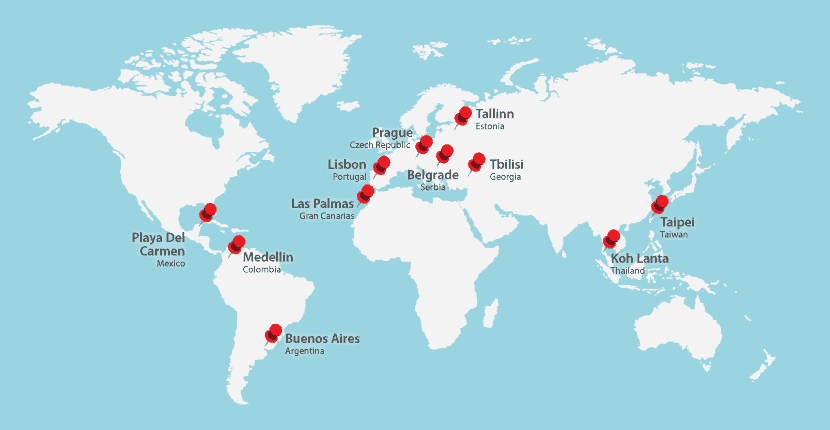
Of course, you also have the world’s vibrant cities like Budapest, Berlin, Amsterdam, Lisbon, London or Prague. They are always a melting pot of start-ups, young people, culture and a buzzing lifestyle. This alone makes it worth it to visit one of the many coworking spaces there.
You see that we can only make a few suggestions, otherwise, this will be a never-ending post. Check them out and find the spot that resonates with your interests and personality!
It’s not only the location and the weather which are critical, however. It’s even more important that there is good infrastructure with fast internet!
Simply put – there are places without a good internet connection. That usually applies to the hammock on the beach where Google Images sees you working. There are many countries, however, that have invested lots of money in the development of telecommunications.
“The number of hotspots is increasing and bandwidth is improving.”
The best-case scenario is that your accommodation already has a strong internet connection. That’s plan A. If that doesn’t work, this is still no reason to throw in the towel. There are more options.
Okay, there is actually an option to connect your hammock to the internet – if your mobile data plan allows it. You can use your smartphone as a Wi-Fi hotspot through the “tethering” function. This lets you connect on the move regardless of your environment.
Take a look at this guide if you want to know how to set it up and what things to pay attention to.
You might think: Isn’t there another obvious solution?
Starbucks! Or any other café maybe?!
Fair enough, but if you need stable Wi-Fi access, it’s likely that you’ll get frustrated by the frequent disruptions. That’s why for many start-ups and digital nomads so-called “coworking spaces” are an alternative choice.
These can be smaller offices or entire complexes where teams or freelancers work side by side. Besides coffee and Wi-Fi, they often offer printers, projectors and meeting rooms. Add in the opportunity for networking with like-minded peers and it’s clear why coworking is on the rise!
Join over 1,000,000 colleagues in London, Amsterdam, Paris or New York and set up your virtual workstation there. In case you’re on a tight budget, there are also cheaper locations like ours in Tenerife.
There is one guiding principle that you should adopt:
Less is more!
Digital nomads are often freelancing to earn their income. Of course, you have to be very disciplined to be able to work this way. But being your own boss is one important perk that makes it worth it. And while you have to make a living wage, money often plays a subordinate role anyway.
Instead of accumulating possessions, the digital nomad lifestyle rather includes the concept of minimalism. And that makes sense – the fact is: The less you carry with you, the more flexible and spontaneous you can be when it comes to changing your city. Absolute location independence!
That’s what the “Cult of Less” is all about.
The aspiration is to minimise your possessions as much as possible. Michael Kelly Sutton, a modern digital nomad and minimalist, was one of the first. He was able to work with a laptop, a Kindle, a smartphone and two external hard drives.

We’ve all been there.
Your motivation to deal with taxes and paperwork falls with each day that a deadline gets closer. And now you’re supposed to take care of it while travelling the world?
Let’s say you’re an aspiring nomad from Germany. What should you do?
Many digital nomads register their self-employment and are thus obliged to pay taxes. If you live according to the Cult of Less, you should be able to cover your overheads with a lower income.
In Germany, most of the free-roaming nomads fall into the tax category of “small businesses”. That means they have to add no tax to their bills and pay no Value Added Tax (VAT). You should always mention your small business tax status on all of your invoices.

It’s advisable to speak to a qualified tax accountant as laws can change from year to year. Ignorance is no defence.
The same goes when you spend a long time as a resident in a foreign country. In this event, the local tax regulations may apply to you. Get expert advice to avoid an unexpected tax bill!
Finally, the currency of your invoices might change if you have local clients during your travels. Online banks like Revolut, or transfer intermediaries like Wise offer services for the easy conversion of your online transactions.
If you’re travelling on a shoestring, it’s always useful to get some advice. Our Digital Nomad Guest recommends travelling outside peak seasons and scanning your network for locals who can offer you tips and tricks.
Who knows, they might even be willing to host you for some time. Because let’s face it: Hotels and apartments are expensive. They’ll likely empty your wallet before you can say “digital nomad lifestyle”.
But don’t worry if you don’t happen to have local friends in every remote part of the world where you’d like to travel to.
There’s another solution: peer-to-peer travel accommodation.
Sites such as Airbnb or Couchsurfing are all part of the trend of the so-called “Sharing Economy”. You’ll find inexpensive rooms in the homes of locals, especially if you’re flexible. Staying longer in one place helps you to negotiate good accommodation deals. You should also check local Facebook groups before you visit a place. Maybe you can find people with whom you can share accommodation.
Or if it’s your cup of tea, you could even sleep, travel and work out of a campervan like our guest Ellen de Dreu.
A never-ending road trip? Sound’s like a plan!
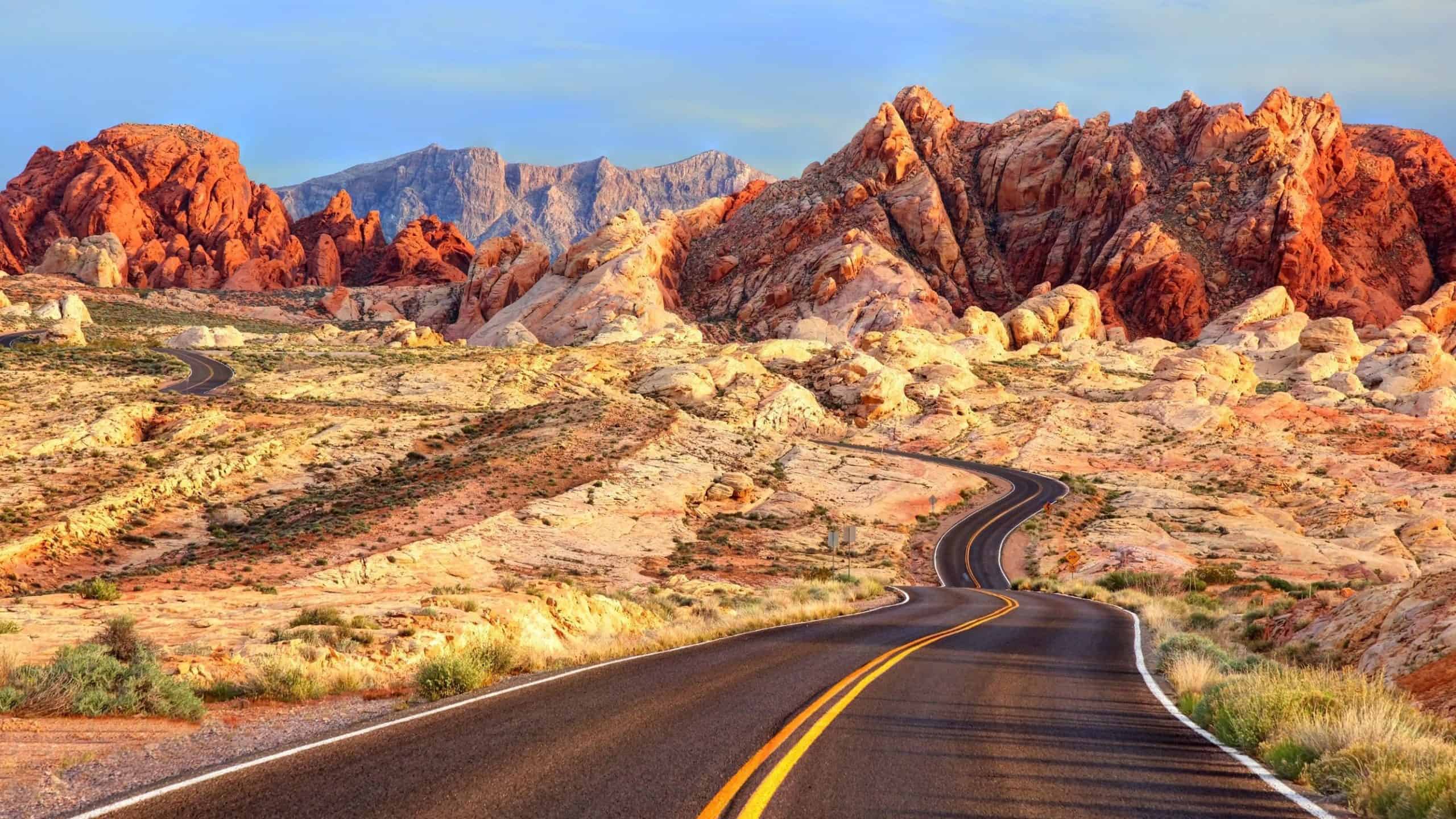
In addition, you have the cost of living to consider. This entails food, drink, transportation and entertainment. Don’t trivialise this issue because naturally: if you feel like you’re on holiday, you will spend money more easily. Do your research to budget your trip before you leave home!
Nomad List is a search engine that can help you with all the planning and choosing of your location. It’s based on the experience of an entire community living the digital nomad lifestyle. You can select the criteria (cost, internet, fun) that matter most to you and go from there.
Most digital nomads are proud of one thing:
They travel without many possessions. Less is more, remember?
Still, it’s not as spontaneous as it sounds. Don’t hit the road before you find out which items and tools are personal essentials.
Here are some suggestions:
…better to be safe than sorry!
Make sure to get adequate travel and medical insurance.
…have your all-rounder with you!
Your laptop will be indispensable as you’ll rely on many online services.
…keep in touch!
A smartphone without a sim-lock will let you find an adequate local mobile plan. Some phones even allow you to insert two sim cards at the same time!
…never run out of energy!
Use extra batteries or power banks like Mophie which you can charge with a USB connection.
…back it up!
A backup on an external hard drive might be a lifesaver if your laptop conks out. Or sync all your saved files with the cloud on a continuous basis, e.g. via the Google Drive Desktop App. This way you’ll be immune to all technical failures.

…stay connected!
An ethernet cable and (if necessary) an USB adapter will be helpful even in coworking spaces.
…keep your rhythm!
Music often helps when you’re working. Sites like Spotify and SoundCloud have lots to offer and are great to find local artists.
…stay organised!
Do you need to organise meetings and split tasks with people scattered around the world? Then Doodle and Trello will help you to find convenient dates and divide the workload. Apps like Slack, Google Hangout or Skype are perfect to facilitate your communication even more.
…document your experience!
Finally, do your future self a favour and get a good camera to take as many pictures as possible. Actually, all you need is one second every day. Seriously.
Are you now asking yourself: How can I adopt the digital nomad lifestyle? If yes, we have something for you. Take a look at the stories of our digital nomad guest trainers at Coworking in the Sun. Or get inspired by more blogs from aspiring digital nomads.
It’s your turn! There are infinite possibilities!
Coworking in the SUN is located in Tenerife, one of the best hub spots in the world for digital nomads. Join our Facebook group with more than 20,000 members and learn why.
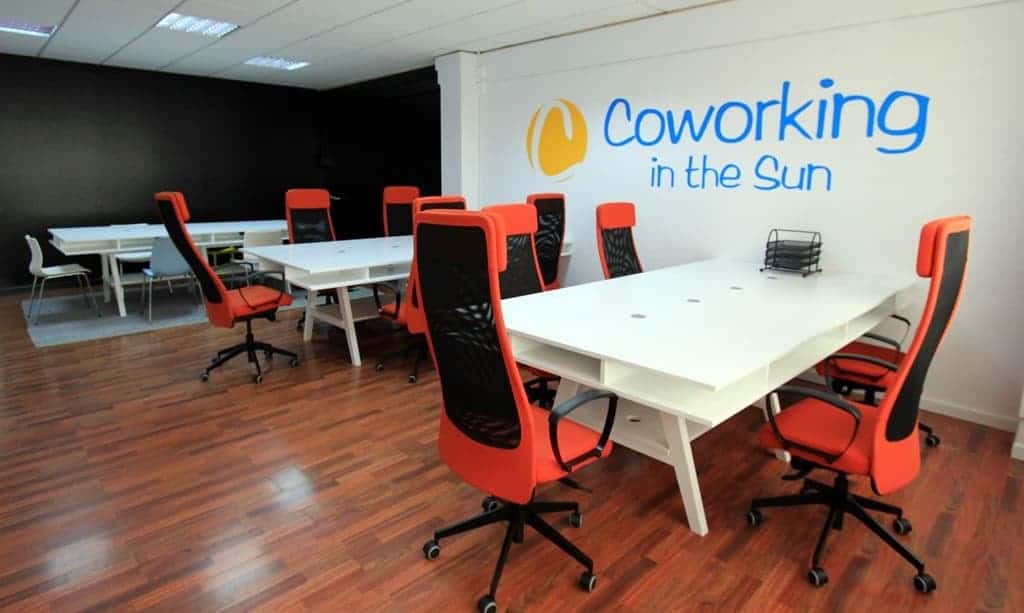





Get the best out of working abroad by booking a single chair in our large open-space coworking room.
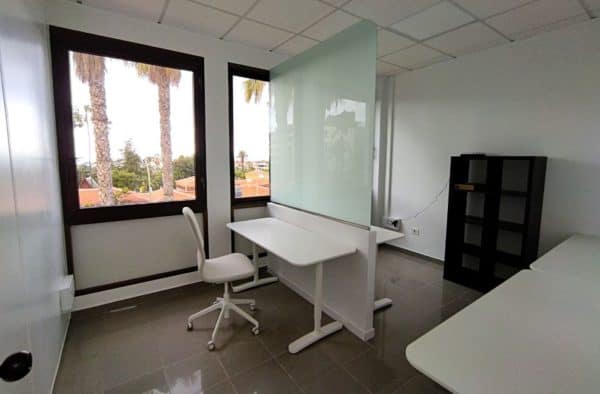
Our brand new private offices provide you with maximum privacy and comfort. For you and your whole team.